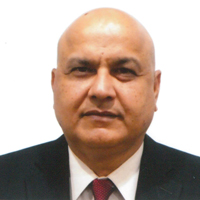Teachers as Actors of Change: Towards Access and Quality of Learning for all Students
June 30, 2021
4:00-5:30 pm (Beirut time)
- Teachers receive little continuous training on pedagogy and soft skills.
- Poverty is one of the main factors impacting the enrollment of children in formal education (and indeed in non-formal educational institutions) as families struggle to provide some of the basic needs for their children.
- School completion is highly unequal, with only half of 18-year-olds from the lowest economic quantiles still in school, and the risk of dropping out of primary school before age 12 is estimated at almost 10 percent.
This second event of the webinar series will discuss classroom-level practices in Lebanon as well as the risks and opportunities in improving the learning experiences of vulnerable children in Lebanon. The webinar will feature the results from the Teacher and Vulnerability Studies of the R4R to provide a better understanding of teaching and learning in the classroom and beyond.
A panel will discuss key questions on learning and educational reform:
How knowledgeable are the teachers in the content they teach?
How effective are the teachers in their classroom practices?
What are good practices that can contribute to higher levels of persistence and positive learning experiences for vulnerable children?
AGENDA
Welcoming Remarks
Mr. Fadi Yarak, Director General of Education, Ministry of Education and Higher Education
Mr. George Nohra, President, Center for Educational Research and Development
Mr. Andreas Blom, Manager, Education Global Practice, MENA Region, The World Bank
Presentations
Teacher Study/Classroom Observations: Ms. Anahita Hosseini Matin
Understanding Risks and Opportunities for Improving the Education Experience for Vulnerable Children: Ms. Hana Addam El-Ghali
Discussion
Mr. Jihad Saliba, Senior Program Development Advisor – S2R2, Center for Educational Research and Development
Moderated by Dr. Karma El-Hassan, Associate Professor Measurement & Evaluation
Education Department, American University of Beirut
Q&A from participants










